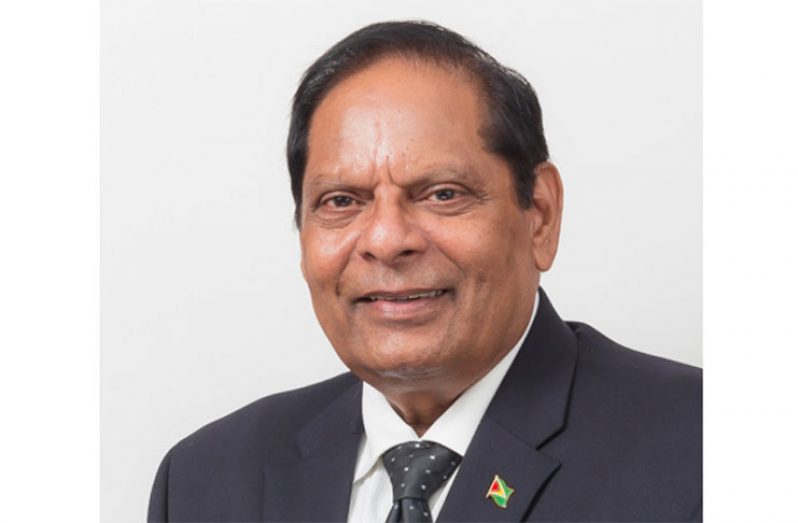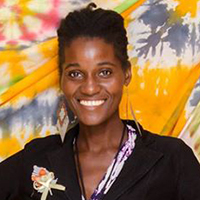IN a bid to ensure food security and sustainable land use in light of climate change, Prime Minister Moses Nagamootoo said Government has embarked upon a new strategy, which will see the digging of at least 11wells in the Rupununi, North West District.
This is in keeping with the United Nations Convention to Combat Desertification (UNCCD), which Guyana endorsed on June 26, 1997 and committed to “give due priority to combating desertification and mitigating the effects of drought, and allocating adequate resources in accordance with circumstances and capabilities”, among other vows.
According to www.greenfacts.org, desertification is “the process by which fertile land becomes desert, typically as a result of drought, deforestation, or inappropriate agriculture,” and with climate change being ‘real’ and ongoing, countries prepare for the unexpected.
Prime Minister Nagamootoo pointed out that “land desertification” are words which are alien to Guyanese, since Guyana is not a country with deserts.
Pointing to a recent landslide in Chile, which has resulted in a struggle for clean water in that South American country, Nagamootoo said, “You don’t need to be a desert in order to suffer from a lack of water.”
ALTERNATIVE WATER RESOURCES
“We must know where we have our water resources and our alternative water resources. And it is for the first time in the history of Guyana that an exercise had commenced to drill wells in the Rupununi where you’ll have periodic long periods of droughts. But we had never thought that we could dig wells,” the Prime Minister said.
BBC World News reported that rainstorms and landslides in Chile contaminated one of the country’s main water sources, forcing authorities to cut off drinking water to more than four million people.
“Rainstorms and landslides in Chile have contaminated a major river, forcing the authorities to cut off drinking water to at least four million people in the capital, Santiago. Officials said the water supply from the Maipo River would be cut to most of the city until the water flowed clear,” BBC World said.
A hectic campaign is now on in Chile to secure water for the peoples on the footsteps of the Andes for drinking.
“There is a plan for 11 artesian wells, but at the same time because there has always been an abundance of water and at the time you didn’t need the water, it was the first time that there has now been a plan to have water reservoirs, to capture and save the water at the time you didn’t need it, for what the Guyanese call the ‘banga time, the hard guava time’ when you really need the water.”
He said such projects are necessary to ensure sustainable development and management of the lands for the benefit of all Guyanese since all are entitled to equal protection.
EQUAL PROTECTION
“That is because we understood the land — we understood what was necessary to make the land sustainable. It was not a priory the thinking that this is Amerindian lands, it is national land, it is Guyana’s land, because every citizen being a Guyanese is entitled to equal protection, and that protection must extend to the resources on which our people live,” Nagamootoo pointed out.
It is with similar concern that Government also encourages the inclusion of new words into the Guyanese lexicon, which will be beneficial at a time when the country launches into new and massive avenues for economic development, partnering with investors from other parts of the world.
“The concept of sustainable development of our lands is very timely. Lots of new words have been creeping in to the Guyanese lexicon, and so we have things like, words like ‘Dutch Disease’ – is that you could have oil and gas, plenty of it, but you could be stricken in poverty if you didn’t set up the fence, the legislation, the guidelines to protect your new found wealth and to ensure that the wealth is used for the benefit of the people. You hear words… as ‘resource curse’- that even though you have the best resources in the world and Guyana certainly has some of the better resources in the world, you could suffer from resource curse where only one set of people would benefit from the resources and the masses of people would remain in poverty.”
Such words, Nagamootoo said, encourage Guyanese to embrace the concept of sustainable development, which is not really an artistic term but one which adds meaning to the survival of the people of Guyana.
SURVIVAL
“It’s not a term of art. It has meaning to our very survival. Without sustainable development we have nothing. The world woke up having being confronted by the spectra of climate change, which posed and still does [pose] a threat to food security and clean air.”
World leaders in 2015 committed themselves to achieving sustainable development through protection, restoration and promotion of sustainable use of terrestrial eco-systems, sustainably managing forests, combating desertification, reversing land degradation and halting the loss of biodiversity.
Guyana enjoys an ‘enviable reputation’ as the ‘green lungs of the earth’, boasting of nearly 87 per cent forest cover.
As Guyana advances along the green path, “We are in the process of refining and pursuing a green state development strategy,” Prime Minister Nagamootoo said.













2 thoughts on “11 wells for Rupununi”
There is no such thing as “artesian wells” in the Rupununi North West District. Actually, they are called “fractured rock wells”. Drilling of those types of wells is a great challenge. Evaluating the long term productivity of those wells is yet another complicated process. So, beware of awarding the contracts to wrong people to avoid the squandering tax payers money. The Trinidadians have no clue regarding water well drilling. And the Dutch is misleading your government into thinking that they have created a new well drilling technology (ask them to site Case Histories of their “new well drilling technology”!!).
Attention Pime Minister Moses Nagamootoo: There is no such thing as “artesian wells” in the Rupununi North West District. Actually, they are called “fractured rock wells”. Drilling of those types of wells is a great challenge. Evaluating the long term productivity of those wells is yet another complicated process. So, beware of awarding the contracts to wrong people to avoid the squandering tax payers money. The Trinidadians have no clue regarding water well drilling. And the Dutch is misleading your government into thinking that they have created a new well drilling technology (ask them to site Case Histories of their “new well drilling technology”!!).